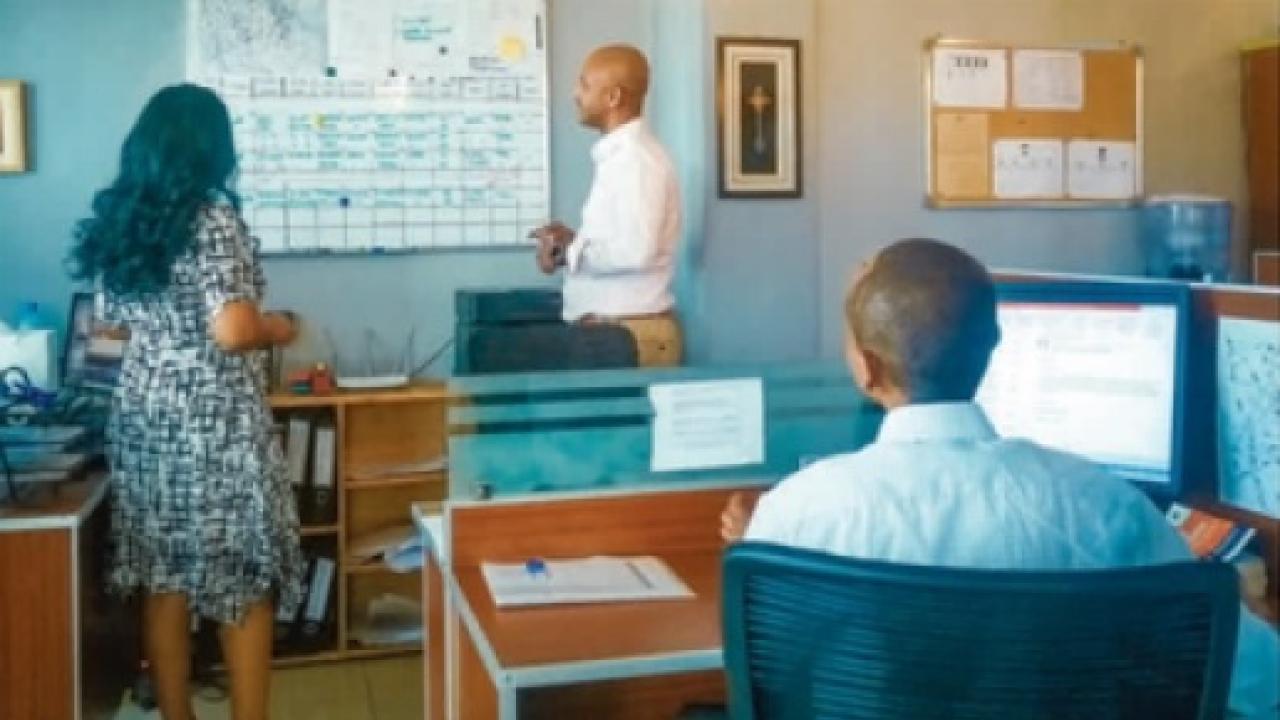Aeromedical puts Krimson in the pink

Dawit Lemma: “The pandemic gave us a lot of experience with handling medical flights.” Picture: Krimson.
Dawit Lemma, CEO of Ethiopia-based Krimson Aviation, had a bit of a panic when the country went into lockdown in March 2020.
“I had to close the office, with only essential staff going in. It was only natural to panic those first couple of weeks, as aviation and tourism were the top two industries to be affected by the pandemic – and this was my business,” said Lemma.
However, he took a breath and grasped the opportunity to “sit back at home and make a plan”.
“I was in my home office with sweatpants and a hoodie on, with a lamp in the dark, thinking ‘how can we stay alive as a company’?”
He had no need to worry, as 2020 turned out to be “the best operational year” in terms of flight numbers that Krimson has ever achieved.
Based at Addis Ababa Bole International Airport, the aviation services business is established in 12 African countries. It provides flight support, charter and leasing brokerage, as well as MRO solutions tailored to aircraft on ground (AOG) issues, plus consulting services, all tailored to business aviation, ad hoc non-scheduled services, humanitarian and medivac segments.
It was its aeromedical division that Lemma focused on during those days at home.
“We’ve been supporting third-party aeromedical service providers in Ethiopia and the region for about four years now,” he explained. “We provide the ground-handling required, plus established protocols for medical evacuations in Ethiopia with the Civil Aviation Authority.
“The pandemic gave us a lot of experience with handling medical flights, especially Covid patients. And, with our enhanced capabilities, we saw a lot of repatriation flights come through. Being based at Bole, along with Ethiopian Airlines, Africa’s largest airline, we were receiving all types of aircraft – from Caravans to Dreamliners.”
Krimson also partnered up with two of the largest hospitals in Ethiopia, which account for around 90% of the medical evacuations within the country.
The company is now looking at air medical as a stand-alone focused business unit, developing its own specialist ground team dedicated to the sector.
The company is just six years old, but has already made a big impact on business and private aviation in both Ethiopia and Africa as a whole.
Lemma said the company has a focus on “developing the business aviation market, or at least the understanding of it”, in the region.
“There’s a misunderstanding between commercial aviation and business aviation,” he explained. “Everybody believes that, because aircraft have wings, they all operate at the same service level. This is obviously not the case.
“Our current focus is to make sure that business aviation aircraft or ad hoc flights, be they humanitarian or medivac, are getting the services they require. Because what you’re seeing across the continent is the same handling agent managing or providing services for the larger triple seven commercial flights, and then an hour later to a Cessna Caravan or to a G5.
“What we’re focusing on currently is expanding our footprint in the ground-handling realm.”
The company has agents and representatives from Egypt, down to Mozambique, and as far west as the Central African Republic.
Lemma revealed the company is looking to establish a fixed-base operation (FBO) at Addis Ababa Bole, with a focus on maintenance for smaller aircraft.
“An FBO is much needed,” said Lemma. “Ethiopian Airlines has a phenomenal MRO, but it’s tailored to the airline industry. We need more focus on business and general aviation.”
When it comes to branching out in other African countries, Lemma admitted: “Of course there are obstacles. There are 54 countries in Africa; that means there’s 54 set of rules, where some countries have more understanding and flexibility than others.
“The three major challenges we have is perception, followed by bureaucracy, and finance.”
For now though, Lemma is gearing up to aviation in Ethiopia opening up entirely, ditching his sweat pants, getting back into a suit, and looking forward to achieving his goals.
Stay up to date
Subscribe to the free Times Aerospace newsletter and receive the latest content every week. We'll never share your email address.

